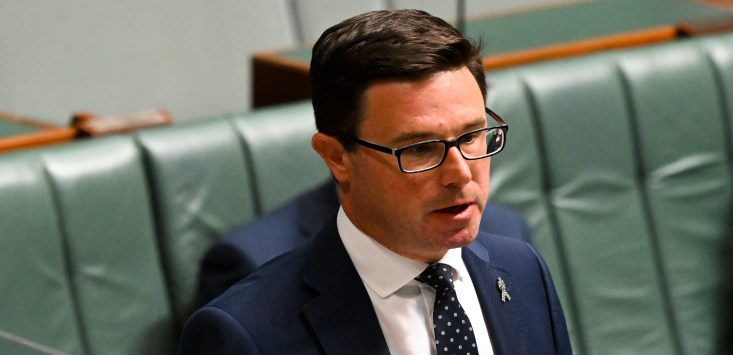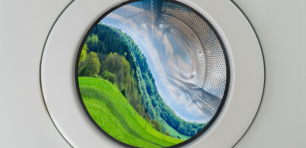
Source: AAP/Lukas Coch
Raising the tax rate on superannuation balances above $3 million will affect “many mum and dad businesses” which hoped to sell up for retirement, National Party leader David Littleproud says, as accountants warn of significant tax implications for successful entrepreneurs nearing the end of their professional lives.
Federal Treasurer Jim Chalmers on Tuesday announced a major shift to the taxation of superannuation funds in their accumulation phase, saying earnings from balances above $3 million will be taxed at 30%, instead of the current concessional rate of 15%.
“The modest adjustment we announce today means 99.5 percent of Australians with superannuation accounts will continue to receive the same generous tax breaks, and the 0.5 percent of people with balances above $3 million will receive less generous tax breaks,” Chalmers said.
Earnings on balances under $3 million will attract the existing 15% concessional tax rate.
Some 80,000 people are expected to face the higher tax rate on their jumbo-sized superannuation balances.
The new rate is scheduled for introduction in the 2025‑26 financial year.
Chalmers said the “modest” adjustment will help make the superannuation system “more sustainable and fairer” while cracking down on those who warp the retirement income system into a vehicle for tax avoidance.
The change is expected to contribute about $2 billion in government revenue over its first full year of operation.
Hitting back against the changes, National Party leader David Littleproud told Sky News the changes will not only hit extremely wealthy individuals benefiting from generous superannuation tax concessions, but small entrepreneurs who had hoped to retire on the funds from selling their businesses.
The new limit will affect “those that have already reached that [$3 million] goal… many mum and dad small businesses that sold their business and did nothing but put it back into their business, so they had something at the end for their superannuation,” Littleproud said.
He disputed Chalmers’ claim the change is not retrospective, saying many Australians approaching retirement had banked on existing superannuation settings.
“Superannuation is a long-term investment that you need to put in place the structures that are complex that give them the support they need,” he said.
While it is difficult to tease out exactly how many small business owners will be among those 80,000 individuals, Tony Greco, senior tax adviser at the Institute of Public Accountants, agreed the new rate could have a major impact on those “mum and dad” retirees.
For individuals with a significant amount of money in their superannuation balance, who intend to sell a business and funnel the proceeds directly into their retirement fund, the new $3 million threshold “will tip them over and that’s an unfair outcome,” Greco told SmartCompany.
“You can spin it and say 99% of the population aren’t there, but it is a direct attack on those who have,” Greco continued.
“And for them, it is a big deal, because the goalposts have moved.”
Those goalposts include decades of assurance given to workers and small business owners about concessional tax rates on superannuation contributions and earnings, including the 2007 decision by then-Treasurer Peter Costello to allow individuals to dump $1 million into their super balances.
Small business owners are also exposed to a significant, albeit complex, suite of tax platforms designed to provide for their retirement.
For example, the small business 15-year exemption removes the assessable capital gain amount from business assets sold prior to retirement under certain conditions.
Those who don’t qualify for the 15-year exemption may also be eligible for the small business retirement exemption, in which individuals are exempt from capital gains tax on an asset if they kick the capital gain into the accumulating portion of their super fund.
Individuals can draw on a lifetime cap of $500,000 for those contributions.
The Treasury’s Tax Expenditures and Insights Statement, released Tuesday, reveals the small business retirement exemption will cost $570 million in the 2022-2023 financial year alone.
“I’m not saying that $3 million isn’t more than enough” to retire on, Greco added.
“It is more than enough for most people.
“But you can’t begrudge those who have chosen this vehicle as their preferred way to save.”
“I’m not defending that these people aren’t adequately financed. It’s more to do with the settings.”
The federal government could consider other existing tax breaks, including negative gearing concessions on property, if it wants to ensure more equitable economic settings and boosted government revenue, he added.
Handpicked for you

Australia-first as watchdog ASIC takes Mercer Super to court over greenwashing



COMMENTS
SmartCompany is committed to hosting lively discussions. Help us keep the conversation useful, interesting and welcoming. We aim to publish comments quickly in the interest of promoting robust conversation, but we’re a small team and we deploy filters to protect against legal risk. Occasionally your comment may be held up while it is being reviewed, but we’re working as fast as we can to keep the conversation rolling.
The SmartCompany comment section is members-only content. Please subscribe to leave a comment.
The SmartCompany comment section is members-only content. Please login to leave a comment.